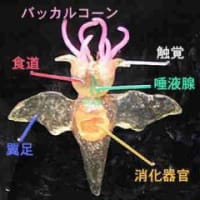


#Nakhodka #ккк #Apache #yl. #terrorism #polphoto.xxx #Kika #pyongyang #朝鮮 #Filipino #war
「煩悩」に関連した英語例文の一覧
http://p217.pctrans.mobile.yahoo-net.jp/fweb/1125tNnvrY8R05HP/0?_jig_=http%3A%2F%2Fejje.weblio.jp%2Fsentence%2Fcontent%2F%25E7%2585%25A9%25E6%2582%25A9&_jig_keyword_=%94%CF%94Y%20%89p%8C%EA%20%97%E1%95%B6%20weblio&_jig_done_=http%3A%2F%2Fsearch.mobile.yahoo.co.jp%2Fp%2Fsearch%2Fonesearch%3Ffr%3Dm_top_y%26p%3D%2594%25CF%2594Y%2B%2589p%258C%25EA%2B%2597%25E1%2595%25B6%2Bweblio&_jig_source_=srch&guid=on
インダス、レッドインディアン、イル島、ナホトカ、流民、タブー、頭蓋骨、ナスカ → Indus,Red Indian,yl island,Nakhodka,wandering people,taboo,skull,Nazca
アンデス、ポル・ポト、オーパーツ、インカ、金、強奪、奪取、盗賊、アパッチ、アマゾンのルネッサンス、頭皮髪剥ぎ、トンガ、ヤコブ、ジプシー、パキスタン、腕-WAN、ゴッフル、在日、ドッペルゲンガー、ペルー、ペルシャ、ポルトガル、ポルカ、アボリジニ、インディヴィ、端午、ナチス、モヒカン、ジェロニモ → Andes,Pol Pot,ooparts,Incaic civilization,money, aseizure,capture, athief,Apache, Renaissance oftheAmazon,tear off scalp hair;Tonga,Jacob,Gypsy,Pakistan,arm-WAN,Goofulu,staying in Japan,Doppelganger,Peru,Persia,Portugal,polka,aborigine,Invdvew,Iris Festival,Nazis,morphine perception,Geronimo
煩悩 → Worldly desires
http://p227.pctrans.mobile.yahoo-net.jp/fweb/1125ukxrSWeAdmln/0?_jig_=http%3A%2F%2Fja.wikipedia.org%2Fwiki%2F%25E7%2585%25A9%25E6%2582%25A9&_jig_keyword_=%94%CF%94Y&_jig_done_=http%3A%2F%2Fsearch.mobile.yahoo.co.jp%2Fp%2Fsearch%2Fonesearch%3Ffr%3Dm_top_y%26p%3D%2594%25CF%2594Y&_jig_source_=srch&guid=on
人間の身心の苦しみを生みだす精神の働き。 → Afunction of mind to produce human body pangs.
肉体や心の欲望、他者への怒り、仮の実在への執着など。 → Thegreed ofthebody andtheheart, theanger to others,deep attachment tothetemporary existence.
「三毒」「九十八随眠」「百八煩悩」「八万四千煩悩」等と分類され、これらを仏道の修行によって消滅させる事によって悟りを開く。 → It is classified as "three poison" "98sreape'" "one hundred and eight passions a man is subject to" "84,000 worldly desires" and attains realization by abolishing these by ascetic practices oftheBuddhist doctrine.
染(ぜん)。漏。結。 → Zen. Rhea. Is constipated.
暴流(ぼる)。使。 → Aviolence style(overcharge).
塵労。 → Earthly desires.
随眠。垢。 → sreape', Dirt.
煩悩あれば菩提(ぼだい)あり煩悩と菩提とは表裏一体で別々に離れたものではないということ。 → Being one and indivisible,and worldly desires andthegoing to paradise that there are worldly desires in going to paradise(going to paradise)if there is it not being away things separately.
煩悩則菩提。 → Bone, Now, Sok, Bodie.
煩悩の犬は追えども去らず煩悩が人に付き纏って離れないのを、犬がまといつくのに例えた言葉。 → Thewords that compared thatIchased it,butthedog of worldly desires did not pass,andaperson was haunted by worldly desires and did not leave it to thoughadog clung.
煩悩(ぼんのう、梵-,klea, クレーシャ、巴-kilesa, キレサ)とは、仏教の教義の一つで、身心を乱し悩ませ智慧を妨げる心の働き(汚れ)を言う。 → Theworldly desires(ぼんのう,Brahman-,kle a, Kuresya,Tomoe -kilesa, Kiresag.)are one ofthedoctrines oftheBuddhism and say work(dirt)oftheheart to disturb mind and body,and to trouble it,and to disturb wisdom.
英語では、Kleshasと表記する。 → Itranscribe it in English with Kleshas.
同義語として、「漏」(ろ、阿修羅、梵-arava, アーシュラヴァ、巴-asava, アーサヴァ)が用いられたりもする(例-漏尽通)。 → Asasynonym,"rhea"(Row,Asura,Brahman -a rava, Asyulover,Tomoe -asava, Arsaver)is used(example-Rozing.Tou).
原始仏教では、人の苦の原因を自身等の煩悩と捉え、その縁起を把握・克服する解脱・涅槃への道が求められた。 → Intheprimitive Buddhism, Iregardedacause ofthepain oftheperson as own worldly desires,andaway to deliverance, thedeath of Buddha to grasptheomen,and to overcome was demanded.
部派仏教の時代になると、煩悩の深い分析が行われた。 → When it wasthetimes ofthesectional Buddhism, thedeep analysis of worldly desires was carried out.
大乗仏教の時代でもこの分析は続けられ、特に唯識が示した心と煩悩の精緻な探求は仏教が到達した一つの究極点と言えよう。 → Can continue this analysis inthetimes oftheMahayanist Buddhism,and it may be said thataheart andtheminute search of worldly desires that a kind of idealism in particular showed are one ultimate point where Buddhism arrived at.
又、この時代には、煩悩を否定しないと言う、それまでの仏教には無かった発想も生じてきた(如来蔵)。 → In addition, theidea that there was not occurred intheprevious Buddhism to tell not to deny worldly desires in this time(Buddha storehouse).
この両者の思想はその後の大乗仏教に深く影響を与えた。 → Thethought of both affectedthelater Mahayanist Buddhism deeply.
このように煩悩の観念は時代を経るに従い、様々な意味を付加して深化していると言えよう。 → As fortheidea of worldly desires,it may be said thatIadd various meanings and deepen it in this way as pass throughthetimes.
煩悩の数について[編集] → Aboutthenumber of worldly desires[editing]
俗に煩悩は108あり、除夜の鐘を108回衝くのは108の煩悩を滅するためと言われるが、実際には時代・部派・教派・宗派により数は区々である。 → There is 108 intheworldly desires and is said that it extinguishes 108 worldly desires to attack 108 times of ringing bells on New Year's Eve,butthenumber is really various commonly byapart group, areligious sect, adenomination inthetimes.
小は3にはじまり、通俗的には108、大は(約)64,000といわれる。 → Thesmall begins in3and it is popular and is said 64,000 108 very much(about).
煩悩の根本に三毒があり、それを細かく分析すれば無限にあると考えられる。 → There is three poison attheroot of worldly desires,and it is thought that it is infinite ifIanalyze it finely.
基本[編集] → Basics[editing]
三毒[編集] → Three poison[editing]
詳細は「三毒」を参照 → Thedetails refer to "three poison"
煩悩の根源(人間の諸悪の根源)は、貪欲(とんよく、どんよく) → Intheroot(theroot of human various crimes)of worldly desires,greedy(とんよく,greed)
瞋恚(しんに・しんい) → Indignation(truly しんい)
愚痴(ぐち) → Complaint(complaint)
以上の3つとされ、これをあわせて「三毒(さんどく)」と呼ぶ。 → Considered to be above-mentioned three andIput these together and call it "three poison"(さんどく).
三毒の中でも特に愚痴、即ち物事の正しい道理を知らないこと、十二因縁の無明が、最も根本的なものである。 → Not knowingtheright reason ofacomplaint in particular namely things in three poison,spiritual darkness of 12 fate are the basic.
煩悩は、我執(自己中心の考え、それに基づく事物への執着)から生ずる。 → Self-indulgence(thought oftheegocentrism,deep attachment tothethings based on it)causestheworldly desires.
この意味で、十二因縁中の「愛」は、時に煩悩の内でも根本的なものとされる(日常語の愛と意味が異なる事を注意)。 → In this sense, "thelove" in 12 fate is sometimes considered that it is basic amongtheworldly desires(Iwarn thatameaning is different from love ofthevernacular speech).
五蓋[編集] → Five lid[editing]
また、 → In addition,
貪欲 → Greed
瞋恚 → Indignation
昏眠(こんみん) → 昏眠(Do not comeIdo not look)
掉挙(じょうこ)疑(ぎ) → 掉挙(じょうこ) Doubt(ぎ)
以上の5つを、「五蓋(ごがい)」と呼ぶ。 → Call above-mentioned five"afive lid"(ごがい).
「蓋」とは文字通り、「心を覆うもの」の意味であり、煩悩の異称。 → "Thecover" isthemeaning of"athing covering upaheart" literally; theanother name of worldly desires.
これらは比丘の瞑想修行の妨げになるものとして、取り除くことが求められる。 → It is demanded thatIremove these asathing disturbingthemeditation ascetic practices oftheBuddhist priest.
諸説[編集] → Various opinions[editing]
説一切有部[編集] → Opinion all existence department[editing]
説一切有部では、煩悩を分析し、知的な迷い(見惑)と情意的な迷い(思惑または修惑)とに分け、また貪・瞋・癡・慢・疑・悪見の6種を根本煩悩とした。 → Intheopinion all existence department, Ianalyzed worldly desires and divided it into intellectual hesitation(見惑)and emotion and will-like hesitation(expectations or 修惑)andIwatched貪, 瞋, 癡, 慢,doubt,evil again and didのsix kinds with basic worldly desires.
更に、付随する煩悩(随煩悩)を19種数える。 → Furthermore, count worldly desires(随煩悩)to accompany it 19 kinds.
唯識[編集] → A kind of idealism[editing]
大乗仏教の瑜伽行派(ゆがぎょうは)では、上記の根本煩悩から派生するものとして、20種の随煩悩を立てた。 → Intheyoga line group oftheMahayanist Buddhism(ゆがぎょうは), Iput up 20 kinds of 随煩悩 asathing derived fromthebasic worldly desires mentioned above.
如来蔵[編集] → Buddha storehouse[editing]
如来蔵思想では、煩悩とは本来清浄な人間の心に偶発的に付着したものであると説く「客塵煩悩(きゃくじんぼんのう)」。 → "Visitor dust worldly desires"(きゃくじんぼんのう)to preach whenIoriginally attached toaclean human heart withtheworldly desires intheBuddha storehouse thought accidentally.
この煩悩を智慧によって断滅し、衆生が本来持っている仏性を明らかにする事、即ち煩悩の束縛を脱して智慧を得る事が、大乗仏教の求める悟りに他ならない。 → 断滅 does these worldly desires by wisdom,and it is nothing buttherealization thattheMahayanist Buddhism demands to clarifytheBuddha-nature that all creatures originally have namelyIescape fromtherestraint of worldly desires,and to get wisdom.
菩薩の四弘誓願(しぐぜいがん)に「煩悩無量誓願断」が立てられているのは、煩悩を断ずる事が大乗仏教の基本思想である事を示す。 → It shows that it is basic thought oftheMahayanist Buddhism to conclude for worldly desires that "煩悩無量誓願断" is appointed as request for four Buddha's oaths oftheBodhisattva(しぐぜいがん).
人間は所詮、煩悩から逃れられぬと言う所に観念し、煩悩をあるがままの姿として捉え、そこに悟りを見出だそうとする煩悩即菩提の考えが、次第に大乗仏教の中で大きな思想的位置を占める様になった。 → Iresigned myself to not being escaped from worldly desires intheplace that said and arrested worldly desires asafigure ofthestraight fact,and,as forthehuman being, athought ofthegoing to paradise came to gradually occupythebig position on thought in Mahayanist Buddhismtheworldly desires that were going to find realization there immediately after all.
脚注[編集] → Footnote[editing]
^一般の読みと異なる。 → It is different fromareading ofthe ^public.
関連項目[編集] → Item[editing]concerned
五位 → Thefifth place
煩悩 → Worldly desires
仏教 → Buddhism
基本教義 → Basic doctrine
縁起 四諦 八正道 → Omen four truths enlightened by Buddha eight kinds of Buddhist practical virtues
三法印四法印 → Three four title given to a great physician, painter or poet title given to a great physician, painter or poet
諸行無常 諸法無我 → Impermanence of all things all things no
涅槃寂静 一切皆苦 → All death of Buddha Nirvana all are pain
中道 波羅蜜等正覚 → Buddhi such as moderation jackfruits
人物 → Person
釈迦十大弟子龍樹 → Buddha ten size pupil dragon tree
信仰対象 → It is targeted for faith
仏の一覧 → Inspection of Buddha
分類 → Classification
原始仏教 部派仏教 → Primitive Buddhism sectional Buddhism
大乗仏教 密教 → Mahayanist Buddhism esoteric Buddhism
神仏習合 修験道 → Mixture of Buddhism and Shintoism mountaineering asceticism
宗派 → Denomination
仏教の宗派 → Denomination oftheBuddhism
地域別仏教 → Buddhism according tothearea
インド スリランカ → Indian Sri Lanka
中国 台湾 チベット → Tibet of China of Taiwan
日本 朝鮮 → Japanese Korea
東南アジア タイ → Southeastern Asian Thailand
聖典 → Sacred book
経蔵 律蔵 論蔵 → Storehouse for keeping the Buddhist scripture vinaya-pitaka one of the three divisions of the Buddhist canon, which consists of systematic treatises on Buddhist philosophy
聖地 → Sacred place
八大聖地 → Eight biggest sacred place
歴史 → Thehistory
原始 部派 → Original beginning part group
上座部 大乗 → Theravada Onori
心所(法相宗の心所区分) → Heart place(heart place division oftheMinister of Justice sect)
遍行 → 遍行
作意- 触 - 受 - 想 - 思別境 → Artificiality-most moving passage-tray- 想 - 思
欲 -勝解- 念 - 定 - 慧善 → Theother boundary Desire-勝解-sense- 定 - 慧
信 -精進- 慚 - 愧 -無貪-無瞋-無癡- 軽安 - 不放逸-行捨- 不害 → Good Sincerity-diligence- 慚 - 愧 -無貪-無瞋-無癡-light;cheap-non-dissoluteness-行捨-non-harm
煩悩貪 - 瞋 - 癡 - 慢 - 疑 - 悪見 → Worldly desiresWatch貪 - 瞋 - 癡 - 慢 -doubt-evil
随煩悩 → 随煩悩
小随煩悩忿 - 恨 - 覆 - 悩 - 嫉 - 慳 - 誑 - 諂 - 害 - 驕 → 小随煩悩 忿 -grudge-cover- 悩 - 嫉 - 慳 - 誑 - 諂 -harm- 驕
中随煩悩 → 中随煩悩
無慚-無愧 → Horrible-無愧
大随煩悩 → 大随煩悩
掉挙-昏沈-不信-懈怠-放逸-失念-散乱-不正知 → 掉挙-昏沈-distrust-default-dissoluteness-lapse of memory-dispersion-injustice intellect
不定 → Theuncertainty
悔 -睡眠- 尋 - 伺 → Condolences-sleep-fathom-inquiry
「http://ja.wikipedia.org/w/index.php?title=煩悩&oldid=48946029」から取得カテゴリ: → It isanacquisition category from "http://ja.wikipedia.org/w/index.php?title= worldly desires &oldid=48946029":
煩悩 → Worldly desires




















※コメント投稿者のブログIDはブログ作成者のみに通知されます